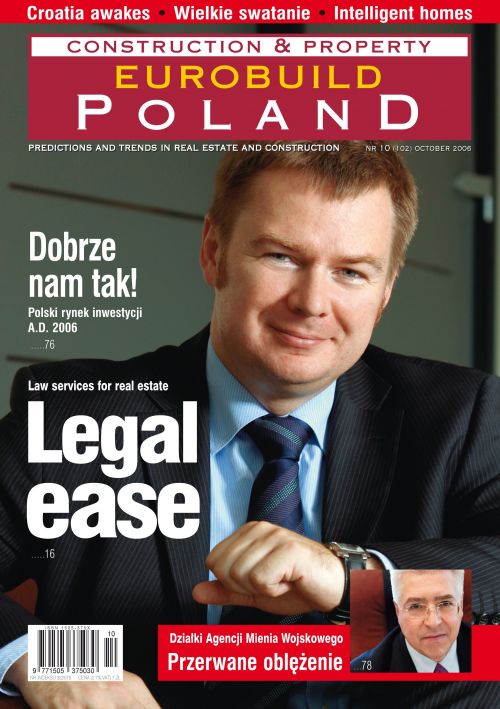Things are looking upAccording to Stefan Jacyno, managing partner of the Wardyński and Partners law firm: “Investor interest dropped substantially, while the development proceeded of such commercial properties as office buildings, which had been planned as early as 2000 and were completed between 2002 and 2004.”Andrzej Lulka, head of the Real Estate Department in Gide Loyrette Nouel says: “The earlier practice had been for legal firms mainly to advise direct investors, who purchased a property, completed the investment project, commercialized it and later sold it on. For several years now the most eagerly awaited customers of law firms have been investment funds and other investors who acquire ready products, individual properties or entire portfolios.”Professional qualificationsIn the opinion of Andrzej Lulka, it is cross border transactions of portfolios of properties in different countries that are the most problematic. Formal legal difficulties also crop up when each of




























































